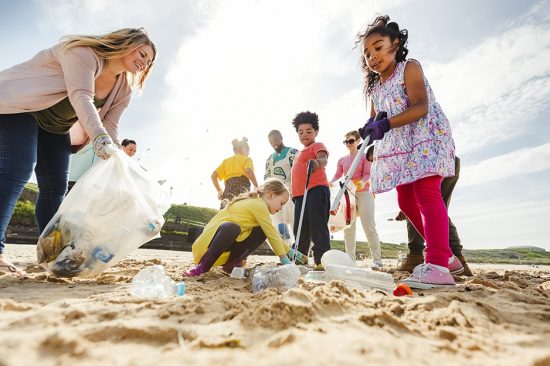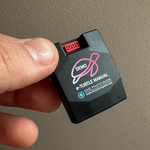
There is not a diver out there that doesn’t care about the environment somehow – a bold yet true statement. No matter what got you into diving, whether it is to enjoy the peace and beauty the ocean brings, to hunt underwater, or simply for work, having clean water to dive in is something every diver needs.
We could compile a detailed list a mile long talking about all the ways to be an environmentally conscious diver, but here are the top ten that have the potential to make the most significant impact. Some of them apply to you specifically as a diver, but most of them are changes you can make in your everyday lives at home.
-
Reduce Your Plastic Waste
Reducing your plastic waste may be one of the most obvious ways to be an environmentally conscious diver. Cutting back on your use of single-use plastics such as straws, grocery bags, plastic baggies, and bottled water will have a huge impact on the environment by creating less plastic waste and reducing the demand for single-use plastic products.
-
Reduce Your Carbon Footprint
Your carbon footprint is the total amount of greenhouse gas emissions produced through your daily activities. There are many ways you can reduce your carbon footprint both in your everyday life and while traveling. At home, the obvious things are to reduce driving, use your air conditioning as little as possible, and shopping less. When traveling, the biggest carbon emitter is air travel. You can significantly reduce this by choosing to stay local or not travel as far. But we know divers love to travel, so when you do, you can offset your carbon footprint by donating the monetary value of your footprint to a conservation organization. Many websites can calculate that amount for you.
-
Organize Clean-Ups
Organizing regularly scheduled clean-ups is a great way to preserve the aquatic environment. Beach clean-ups are the most obvious to conduct as environmentally conscious divers, but even cleaning up your local lake, river, or stream areas does a lot to keep our aquatic world clean and healthy as well.
-
Use Reef-Safe Sunscreen
Regular sunscreens contain oxybenzone and octinoxate, two UV-blocking chemicals that can cause coral bleaching. Some areas like Hawaii and the city of Key West in the Florida Keys have passed laws banning the use of non-reef safe sunscreens. Reef-safe or reef-friendly sunscreens are usually zinc-based and do not harm corals, so make sure you stock up on these sunscreens before heading to the tropics.
-
Be Water-Wise
All water on Earth is connected, so treat it carefully. Being water-wise means you are conscious of the water you use and how you treat it. Reduce the amount of water you use by turning it off when it’s not needed, take shorter showers, and install water-saving faucets in your house. You can also improve water quality by watching what you put into it. Use non-toxic cleaning products, low-phosphate detergents, and biodegradable soap, shampoo, and conditioner. When traveling, do not go crazy drinking bottled water; bring a reusable water bottle and stock up on gallon-sized filter water to refill your bottle.
-
Support Eco-Operators
Choosing to dive with an Eco-Operator goes a long way to help protect our oceans. Eco-Operators go above and beyond to ensure they are doing all they can to operate with minimal impact on the environment such as only diving within official marine sanctuaries, not anchoring (only live-boating or using mooring buoys), turn off boat engines as much as possible, and supporting local reefs with other conservation efforts. To ensure you dive with an Eco-Operator, find an SSI Blue Oceans Center near you.
-
Choose Sustainable Equipment Manufacturers
Even the small act of choosing who to buy your dive equipment from can significantly impact the aquatic world. An environmentally conscious diver chooses to purchase products from companies that make an effort to reduce their carbon footprint and plastic waste. Equipment manufacturers like Mares have drastically changed their product packaging to include wetsuits wrapped in biodegradable bio-bags and paper-based mask boxes.
-
Practice Perfect Buoyancy to Become a Environmentally Conscious Diver
Your main goal as a diver should be to practice having perfect buoyancy on every dive. Not only will it help you conserve air and have a more relaxed, enjoyable dive, but it will also keep you off the reef. Keep our reefs in pristine condition by looking but not touching. Perfect your buoyancy by taking the SSI Perfect Buoyancy Specialty course today!
-
Take Only Photos, Leave Only Bubbles
This saying is famous for a reason; because it is true, and it works. Enjoy the beauty and relaxation of your dive but please, leave behind the seashell souvenirs. And especially leave behind the hundreds of dried shells and sea stars being sold on the side of the road because chances are, they were not caught sustainably.
-
Eat Sustainably
Making sure you eat both sustainably caught seafood and responsibly grown produce and meat products will go a long way to protect the environment. Eating seafood only listed on the sustainable seafood list produced by the Monterey Bay Aquarium helps. But also eating land-based foods grown without toxic fertilizer and meat harvested from small, sustainable farms protects our oceans too.
What ways do you practice being an environmentally conscious diver? Comment on this blog and let us know!
The post 10 Ways to be an Environmentally Conscious Diver appeared first on Dive SSI.
Read MoreEnvironment, eco diver, ecology diver, environmental, Environmentally Conscious Diver, sustainability, sustainableDive SSI

